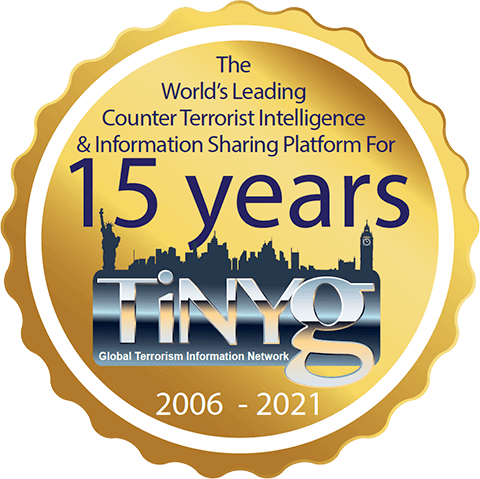11/07/24
India, Russia call for 'zero tolerance' to terrorism
India and Russia on July 9 called for "zero tolerance" to terrorism and pressed for an "uncompromising fight" against the international menace as they stressed the importance of increasing global cooperation without hidden agendas and double standards, in a veiled jibe at Pakistan and its all-weather ally China.
In a joint statement issued after the talks between Prime Minister Narendra Modi and Russian President Vladimir Putin in Moscow, the two sides strongly condemned the dastardly terrorist attacks, including one on an Army convoy in the Kathua area of Jammu and Kashmir on Monday, and stressed that these terrorist attacks are a grim reminder for further strengthening cooperation to combat terrorism.
"The leaders unequivocally condemned terrorism and violent extremism conducive to terrorism in all its forms and manifestations including the cross-border movement of terrorists, and terrorism financing networks and safe havens," the joint statement said.
The two sides called for "an uncompromising fight against international terrorism and extremism" in all their forms and manifestations, noting the importance of increasing cooperation in this area, without hidden agendas and double standards on the solid basis of international law and the UN Charter, in an apparent reference to Pakistan and its all-weather ally China which has often put on hold proposals in the United Nations to blacklist the Pakistan-based wanted terrorists.
Besides, they stressed the need for firm implementation of relevant resolutions of the UN Security Council, the UN General Assembly, as well as the implementation of the UN Global Counter-Terrorism Strategy, the statement said.
The two sides emphasised the primary responsibility of States and their competent authorities in combating terrorism and that global efforts to prevent and counter terrorist threats must fully comply with their obligations under international law.
They called for zero tolerance to terrorism and expeditious finalisation and adoption of the Comprehensive Convention on International Terrorism in the UN framework as well as the implementation of the UNGA and the UNSC resolutions on countering terrorism and violent extremism, conducive to terrorism," the statement said.
The two leaders reiterated that "terrorism should not be associated with any religion, nationality, civilisation or ethnic group" and that all those involved in terrorist activities and their supporters must be held accountable and brought to justice in accordance with international law.
Delhi Declaration
They highly appreciated the Special Meeting of the UNSC Counter-Terrorism Committee held in India in October 2022 under India's Chairship and welcomed the unanimously adopted Delhi Declaration on countering the use of new and emerging technologies for terrorist purposes.
The leaders noted that the declaration aims to cover the main concerns surrounding the terrorist exploitation of Information and Communications Technology, such as payment technologies, social media platforms and fundraising methods and misuse of unmanned aerial vehicles (UAV, or drones), the statement said.
The two sides reaffirmed their commitment to strengthening multilateral cooperation in the field of combating transnational organised crime, countering money laundering, terrorist financing and drug trafficking.
They also expressed their readiness to strengthen the dialogue in the field of security in the use of ICTs based on the Agreement on Cooperation in International Information Security dated October 15, 2016.
"Both sides stressed the importance of strict compliance with the principles of sovereign equality of states and non-interference in their internal affairs," it said.
The two sides reaffirmed their commitment to further strengthening global efforts for non-proliferation of weapons of mass destruction. "Russia expressed its strong support for India’s membership of the Nuclear Suppliers Group," the statement said.
The two leaders welcomed the counter-terrorism measures against international terrorist groups, including in particular the Islamic State, and other groups and expressed confidence that the fight against terrorism in Afghanistan would be comprehensive and effective.
Afghan situation
Both sides discussed the situation in Afghanistan, including the security situation and its implications in the region, the current political situation, issues related to terrorism, radicalisation and drug trafficking, the statement said.
They advocated for Afghanistan as an independent, united and peaceful state free from terrorism, war and drugs, living in peace with its neighbours and ensuring respect for basic human rights and freedoms, including for the most vulnerable sections of the Afghan society, it added.
The two sides highlighted the imperative of a peaceful resolution of the conflict around Ukraine through dialogue and diplomacy, including engagement between both parties. They noted with appreciation relevant proposals of mediation and good offices aimed at peaceful resolution of the conflict in accordance with international law and on the basis of the UN Charter in its entirety and totality.
They also expressed deep concern about the situation in the Middle East, with a particular focus on Gaza, and called for immediate safe and unhindered delivery of humanitarian assistance at scale directly to the Palestinian civilian population throughout the Gaza Strip.
"They also called for the effective implementation of the UNSC resolution 2728 for a lasting sustainable ceasefire. They equally called for the immediate and unconditional release of all hostages as well as humanitarian access to address their medical and other humanitarian needs," it said.
They reaffirmed their support for Palestine's full membership in the United Nations and reiterated their unwavering commitment to the principle of the two-state solution according to an internationally accepted basis.
Related Links
Back to index

